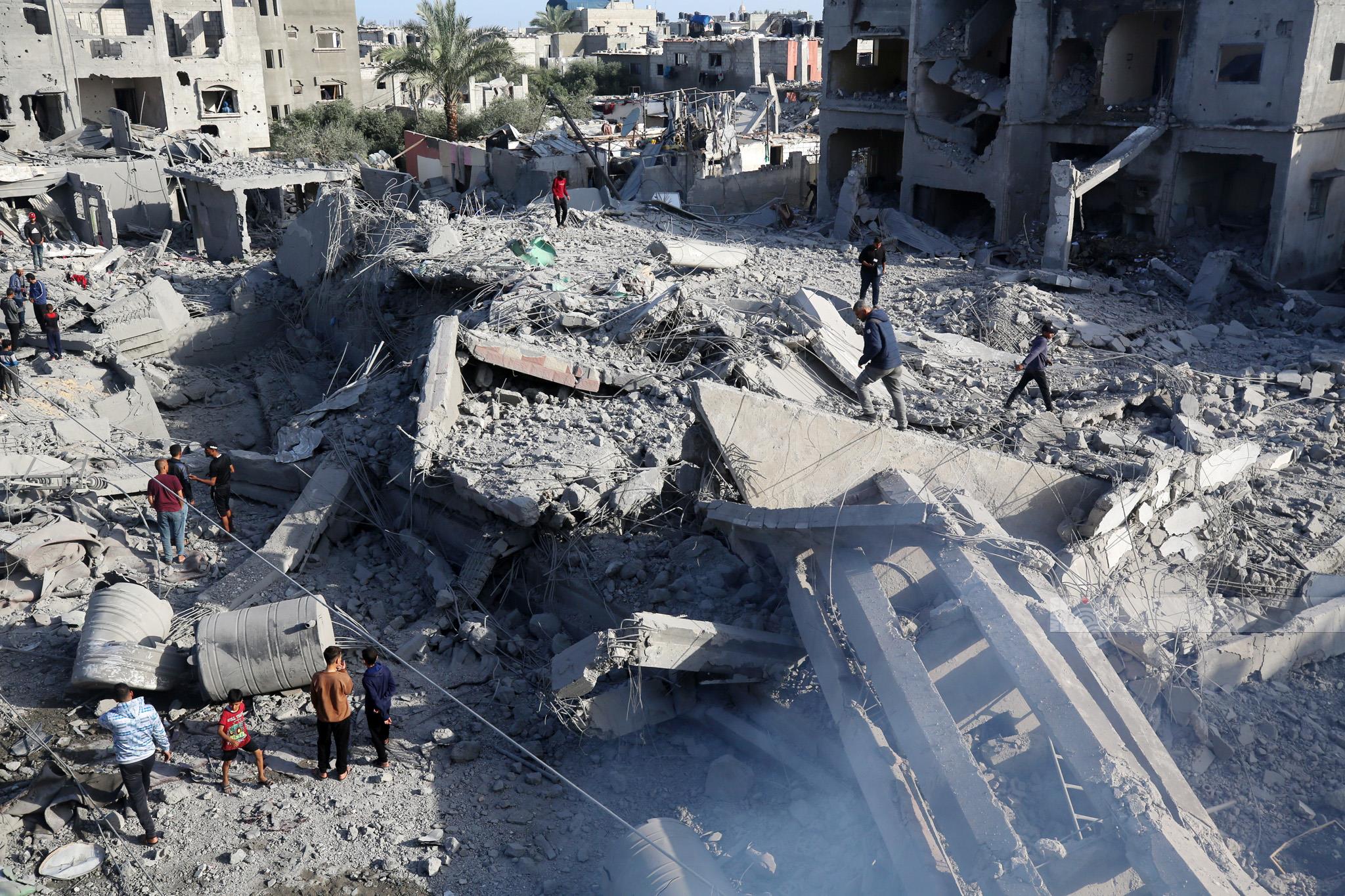Qatar reaffirms its role as an impartial mediator in talks over a Gaza deal, emphasising its commitment to integrity and rejecting external interference in its mediation efforts.
Qatar reiterated its commitment to its “honest mediator role” between Israel and Hamas, stressing that it will not accept being a pressure tool by any party, diplomatic sources told Al Jazeera Arabic on Sunday.
Speaking to the Qatar-based broadcaster, the sources noted that Doha “does not impose itself on the parties” and assumes any mediation role upon the request of the sides involved.
The sources added that Qatar “would not allow interference from any party that would affect the integrity of its role.”
The diplomatic sources’ remarks came as Qatar continues to face increased criticism by Israeli officials over its crucial mediation role that is aimed at reaching a ceasefire and a captives release deal.
Israeli officials only amplified their criticism despite Qatar’s effective role, alongside Egypt, in releasing at least 109 captives last year.
This came under a deal Doha and Cairo had mediated between November 24 and December 1 last year.
This was seen in January when Israeli Prime Minister Benjamin Netanyahu described Qatar’s mediating position as “problematic” in leaked audio recordings. Netanyahu then said he stood by his inflammatory remarks.
Then on April 4, Israel’s economy minister Nir Brakat accused Qatar of being “untrustworthy” and “a threat to peace” in the world in an interview with Bloomberg.
The diplomatic sources told Al Jazeera that the Qatari mediation only disturbed “certain parties which have worked to criticise and attack it.” Such attempts are also aimed at transforming Qatar’s role “from an honest mediator” to a pressure tool, the sources added.
Qatar, a seasoned regional and international mediator, pointed out that it has maintained its role as an honest mediator throughout past efforts. It has also hosted the Hamas office since 2012 upon Washington’s request to maintain channels of communication.
On April 17, Qatar’s Prime Minister Sheikh Mohammed bin Abdulrahman Al-Thani called out the “exploitation and abuse” of his country’s diplomatic efforts and said Doha is “re-evaluating” its mediation role.
“Unfortunately, we have seen that there is a misuse of this mediation for narrow political interests, and this necessitated the State of Qatar to carry out a comprehensive evaluation of this role[…] and evaluate how all parties engage in this mediation,” Sheikh Mohammed, who is also Qatar’s foreign minister, said at the time.
Ceasefire efforts ongoing
Qatar maintained its mediation efforts while dodging all criticism subjected towards its pivotal role.
Talks appeared to gain momentum last week following five months of stalemate, with Hamas sending its response to the mediators in Cairo.
The US Secretary of State Antony Blinken was also on a regional tour during the same period. The tour was his seventh since the beginning of the war and included Saudi Arabia, Jordan and Israel.
A Qatari delegation then headed to Cairo on Saturday for a new round of talks that included officials from Hamas and the U.S.
Hamas reportedly accepted the proposal presented by Egypt for a 124-day truce deal after the removal of Israel’s objection to several names of Palestinian prisoners to be released under the potential deal, sources told Al Sharq News on Saturday.
Hamas returned to Doha on Monday evening to continue negotiations with the members in the country, though it is scheduled to return to Cairo for further negotiations on Tuesday.
“The movement’s delegation had delivered the movement’s response to the mediator brothers in Egypt and Qatar, where in-depth and serious discussions took place with them,” Hamas said on its Telegram channel.
“The movement affirms its positive and responsible approach, and its keenness and determination to reach an agreement that meets the national demands of our people, ends the aggression completely, achieves withdrawal from the entire Gaza Strip, returns the displaced, intensifies relief, begins reconstruction, and completes the exchange deal,” Hamas added.
CIA director Bill Burns is scheduled to visit Doha to meet with Qatar’s prime minister for an “emergency” meeting after the talks in Cairo resulted in no breakthrough, a source with knowledge of the talks told AFP Sunday.
“CIA director Burns is on his way to Doha for an emergency meeting with Qatar’s prime minister to explore avenues to see if the talks can be brought back on track,” the source said.
Israel evacuates Rafah
Israel’s insistence on invading Rafah has posed a threat to the negotiations.
Senior Hamas official Osama Hamdan told Al Jazeera on Saturday that one of the key issues being discussed was Netanyahu’s plans to launch the Rafah invasion. He noted that an invasion of Rafah “means there will be no ceasefire.”
However, on Monday morning, Israeli occupation forces ordered around 100,000 people to forcefully evacuate from eastern Rafah ahead of a ground invasion.
“The IDF will continue pursuing Hamas everywhere in Gaza until all the hostages that they’re holding in captivity are back home,” the Israeli military said on X.
Rafah is densely populated with more than one million people seeking shelter in fragile tents, including people forcibly displaced by Israeli forces from the north.
The invasion of Rafah would be catastrophic and leave the population with nowhere to flee other than to neighbouring Egypt.
Israel has already killed more than 34,600 people in Gaza since launching the brutal genocidal war on October 7, 2023, while creating a humanitarian catastrophe.
The invasion has been an international concern, including Israel’s staunchest ally, the U.S., and mediators Qatar and Egypt.
Speaking at a joint press conference with Spanish Prime Minister Pedro Sanchez on April 3, Qatar’s prime minister stressed that the move would only lead to another genocide.
“We don’t see any country but Israel supporting an attack on Rafah. You cannot corner the people, around 50 percent of the population in Gaza, almost 10 percent of the Strip, and attack them,” Sheikh Mohammed, who is also Qatar’s foreign minister, said.
“It won’t happen without committing a major genocide besides the genocide being committed in Gaza,” he added.







